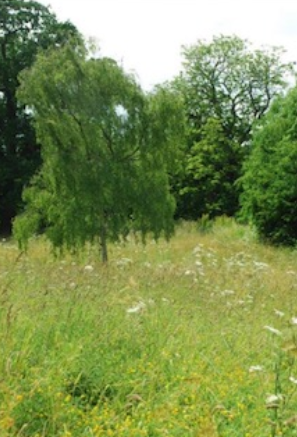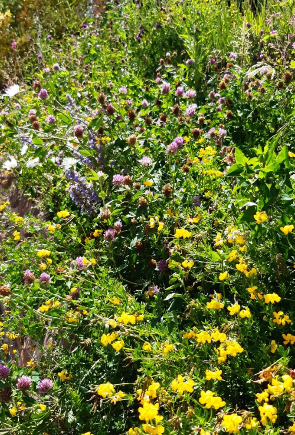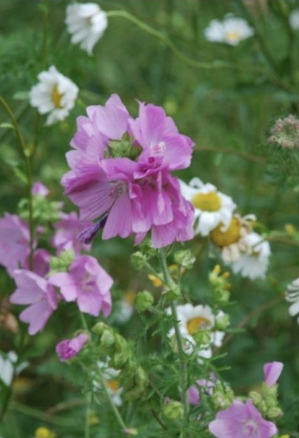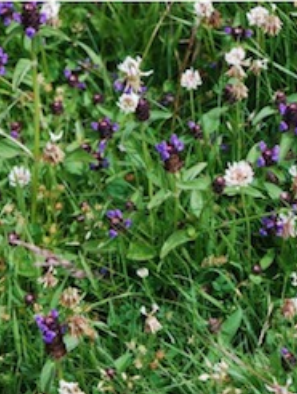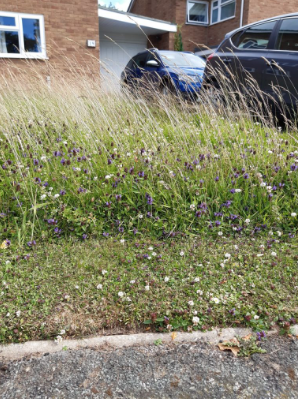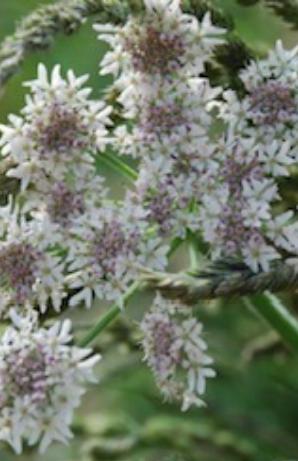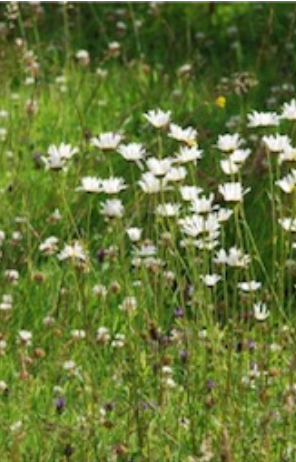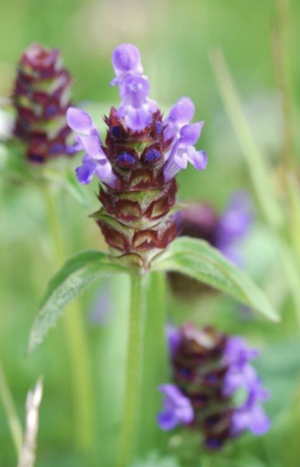Mini-Meadows: A Review
A successful afternoon was held on Sunday June 26th, there were 14 private gardens and public spaces open to view. They were all different, some had been in place for many years so were established wildflower areas, others had been started in the last few years and some just this year. Some are perennial wildflowers others annuals which need to be sown every year.
The Spinney and Frog Lane areas are being developed as part of CWAC’s biodiversity plan. These areas were only prepared and sown fairly late in the season so may look better in a month or so.
Included in the trail was Glebe Meadow originally registered as a Site of Biological Importance (SBI) in Cheshire and is an important Local Wildlife Site (LWS); the largest meadow in our village.
Previous botanical survey data submitted to CWaC and Cheshire Wildlife Trust, confirm a species-rich habitat, including the following:
23 species of grass
20 species of wildflowers
Small Skipper Butterflies (uncommon in Cheshire) and a number of other declining species such as Orange-tip, Small Tortoiseshell and Meadow Brown
A host of invertebrates
An inventory of a small area of mini meadow outside Tattenhall Hall registered 28 different flowering species (this area has been planted up with early flowering species like snowdrops, wild daffodils, primroses and cowslips, which were not in evidence at the weekend). However on both sites an unusual butterfly was seen, a Ringlet butterfly – it feeds on grass!
Some gardens had just left areas of lawn to grow longer – Tattenhall was clearly a wildflower rich area before the houses were built – one particular lawn had a little fine grass but lots of lovely purple self heal, black medick with little yellow flowers and clover – a real picture. It was noted that unlike areas of mown grass which had turned yellow with the drought these areas were still green and flourishing – wildflowers like clover have much deeper roots than grass so will survive better in periods of little rain.
The plan is to make this an annual event, to highlight the delights of growing wildflowers, but also reducing mowing (and in times of high petrol prices this makes more sense). The benefits for wildlife are evident – more insects mean more birds and animals.
If you want to be part of this project but need advice you can email us at transition.tattenhall@gmail.com
and we can do a site visit to see what your individual needs are.

